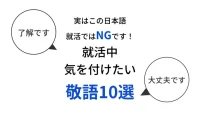What does "ウィンウィン (win-win)" mean in Business x Japanese? Paraphrases, usage and example sentences.

In the business world, there are many Japanese expressions that cannot be understood just by looking them up in a dictionary. Among them, the phrase "ウィンウィン (win-win)" is particularly often heard, but do you know its exact meaning and proper usage?
In this article, in addition to the meaning of the expression "ウィンウィン" in Japanese, we will explain in detail how it is used in business situations, paraphrased expressions and thesauruses. With a wealth of example sentences, you will clearly understand the meaning and usage of "ウィンウィン" and apply it to your daily communication.
▼Goandup Picks Click here for recommended articles!
- Required before studying abroad! Goandup Nihongo+, an online Japanese language learning service
- This page introduces services for foreigners who wish to study in Japan or improve their Japanese language skills to learn Japanese online.
- Goandup Salon" community for foreigners living in Japan
- We introduce an online community where foreigners living in Japan can exchange information and interact with each other to support their life in Japan.
- Goandup Study" supports foreigners who want to study in Japan.
- This section introduces study abroad support services that provide comprehensive support to foreigners who wish to study in Japan, from preparation for study abroad to living in Japan.
- Where can I buy a prepaid SIM in Japan? Recommended SIM cards for foreigners are also introduced.
- How to purchase a prepaid SIM and suitable SIM cards for foreigners.
- The Complete Guide to Pocket Wi-Fi in Japan for Foreigners!
- We introduce how to select and recommend pocket Wi-Fi products that can be used conveniently in Japan.
- The Complete Guide to Finding a Job in Japan! Finding a job, changing jobs, and part-time work for foreigners
- This site provides foreigners who want to work in Japan with comprehensive information on how to find a job, recommended job sites, and other information necessary to find a job.
What does the Japanese word "ウィンウィン(winwin)" mean?

"ウィンウィン" is literally the katakana form of the English word "win-win," which basically means "a situation in which both parties benefit.
This expression goes beyond the idea that one party gains and the other loses; it refers to a result or outcome that satisfies both parties. In business situations, building this "win-win relationship" can be the foundation of a sustainable partnership.
What is the English expression corresponding to "ウィンウィン"?
The term "ウィンウィン" is a Japanese adaptation of the English expression "win-win." Therefore, when expressing it in English, the original expression "win-win" is used as it is.
How to use "ウィンウィン(winwin)" in business situations and example sentences

In business, the expression "ウィンウィン" is used to refer to situations that benefit both parties. Below are some example sentences using "ウィンウィン" in actual business situations.
Example sentence 1: "This project has brought great benefits to us and to our business partners, so it is truly a win-win result."
→This is an example of a situation in which a project has brought significant benefits to both parties.
Example 2: "There were many challenges in this project, but by overcoming them, both myself and my subordinates were able to grow a lot. The end result was a win-win situation that was very beneficial to both parties."
→The challenges faced during the course of the project ultimately proved to be valuable growth opportunities for myself and my subordinates.
Example 3: "A win-win relationship has been established between us and Company A, where we support and grow together."
→This indicates a "win-win" relationship built on mutual support and growth.
These examples show exactly how the concept of "ウィンウィン" can be used in business situations. Situations in which both parties benefit are critical to building a stronger relationship by establishing a foundation of mutual understanding and trust.
◆To learn more about business Japanese, check out the following articles!
- What does [understand well] 「逆に」 mean? Thesaurus and example sentences.
- Explains the meaning of the business term "draft". Is it different from draft beer?
- What is the meaning and usage of the word "drop"? And example sentences in business situations.
- What does "zakkuri" mean and how is it used? Expressions in business situations are also introduced.
- What does "ass" mean as used in business conversation?
- What does "Tatakidate" mean in Business x Japanese? Explanation + Example Sentences
Paraphrases and synonyms of "ウィンウィン(winwin)" and their meanings

Paraphrases and analogies that can be used to express the meaning of "ウィンウィン" include the following
- win-win: A situation in which both parties feel that they are benefiting.
- Mutually beneficial: Emphasize that it is directly beneficial to both parties.
- Positives for both parties: The result is that there is a positive effect on both parties.
- give-and-take: Indicates a mutually supportive relationship.
- co-existence and co-prosperity: It refers to cooperating with each other and prospering together.
- coinciding interests: Indicates a state in which the interests of both parties are aligned.
- have the same intentions: The two parties' intentions and objectives are aligned.
- It's mutually beneficial: A situation that is convenient for both parties.
These words focus on a mutually satisfactory outcome in which the other party's and one's own interests are aligned.
In business interactions, using these paraphrases and analogies for different situations and nuances will make communication richer and more flexible.
What are the situations in which "ウィンウィン(winwin)" should not be used in business?

While the phrase "ウィンウィン" is often useful in business situations, there are some situations in which it should not be used. Especially in formal situations, formal contract negotiations, or meetings that require a high degree of professionalism, it is best to avoid this expression. In such situations, the expression "ウィンウィン" may appear to lack respect for the other party or be thoughtless.
Specific examples:
- In contract negotiations: Rather than saying, "I think this deal is a win-win," it is more appropriate to clearly state the benefits of the deal: "This deal is beneficial to both parties.
- The board meeting presentation will include: Rather than saying, "It will be a win-win outcome," you should emphasize the specific benefits of the plan, saying, "I am confident that this plan will benefit both the company and the employees.
In formal business situations, it is important to be careful in your choice of words and to choose more professional expressions to show respect for others and your professionalism.
Serious employment support to help you realize your dream of working in Japan!

Do you want to work in Japan?
Let us "Goandup" make that dream a reality!
【 Program Features 】
✅ JLPT N3 level Japanese language acquisition
✅ Thorough preparation for the specific skills test
✅ Full support for job hunting in Japan
Business-focused one-on-one lessons will help you find a job in Japan in the shortest possible time.
【 Program Menu 】
- Individual Japanese language lessons
- Intensive curriculum to obtain N3, especially specialized lessons for business Japanese that can be used at work.
- Intensive curriculum to obtain N3, especially specialized lessons for business Japanese that can be used at work.
- Preparation for the Specific Skills Test
- Customized materials for specific skill tests will be used to focus on frequently asked questions and learning to pass the test.
- Customized materials for specific skill tests will be used to focus on frequently asked questions and learning to pass the test.
- Resume and CV support
- To create resumes and CVs tailored to Japanese corporate culture, and to brush up on self-promotion and motivation for application.
- To create resumes and CVs tailored to Japanese corporate culture, and to brush up on self-promotion and motivation for application.
- Interview Preparation
- Guidance on areas for improvement through mock interviews and feedback based on corporate interview scenarios. Learn interview etiquette and behavior unique to Japan.
- Guidance on areas for improvement through mock interviews and feedback based on corporate interview scenarios. Learn interview etiquette and behavior unique to Japan.
- career consulting
- Provide introductions to companies that match the participant's career goals, select companies to apply to, and provide advice on the level of knowledge required by the companies to which the participant is applying.
- Provide introductions to companies that match the participant's career goals, select companies to apply to, and provide advice on the level of knowledge required by the companies to which the participant is applying.
- Chat Support
- In addition to one-on-one individual lessons, we also accept casual questions via DM (visa application, living support, assistance in finding a room, etc.).
If you are serious about your career in Japan, join us now!
▶︎ for more informationclick here.
We will do our best to support your success in Japan!
summary
This article details the meaning of the expression "ウィンウィン", its usage, paraphrases and analogies. The concept of "ウィンウィン" often plays an important role in business communication, and using this expression in appropriate situations can enhance mutual understanding and cooperation.
However, not all situations are appropriate for this term, so it is important to consider the context and choose a more appropriate wording. It is recommended that you only use it in close conversations within your company or with colleagues.
Ultimately, the goal of business communication is to build a relationship of trust with the other party and to achieve the best possible outcome for both parties. Let's deepen our knowledge of business Japanese in order to facilitate business more smoothly.
Your support will help us!
Thank you for visiting Goandup Picks. Our mission is to provide you with more useful information to show the world what Japan has to offer.
Your support will help us to further enhance our activities, so please support us!






